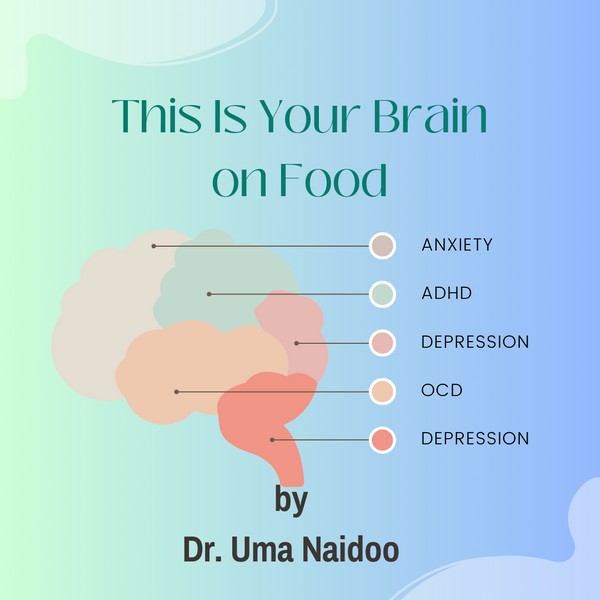Key Takeaways
- Omega-3 fatty acids support heart health by reducing triglycerides and lowering blood pressure.
- They play an important role in brain function and development, improving cognitive health.
- Omega-3s have anti-inflammatory properties that can alleviate symptoms of arthritis.
- These fatty acids are essential for eye health and can help prevent macular degeneration.
- Consuming Omega-3s can improve mental health by reducing symptoms of depression and anxiety.
Omega-3 fatty acids are essential fats that the body cannot produce on its own. They are vital for maintaining overall health and must be obtained through diet or supplements.
Found in high concentrations in fish, Omega-3s are known for their numerous health benefits, from supporting cardiovascular health to enhancing brain function.
Heart Health

Omega-3 fatty acids have been extensively studied for their heart health benefits. They help reduce triglyceride levels, which are a type of fat found in the blood.
High levels of triglycerides are associated with an increased risk of heart disease.
Omega-3s also help lower blood pressure, reduce the risk of arrhythmias (abnormal heartbeats), and slow the buildup of plaque in the arteries.
Omega-3s play an important role in reducing the risk of heart attack and stroke by improving these cardiovascular markers.
Brain Function and Development

Omega-3 fatty acids are vital for brain health. DHA (docosahexaenoic acid), a type of Omega-3, is a major structural component of the brain and retina.
It is essential for the growth and functional development of the brain in infants and for the maintenance of normal brain function in adults.
Studies have shown that Omega-3s can improve cognitive function and reduce the risk of age-related cognitive decline and Alzheimer’s disease.
They are also important for mental health, with research indicating that they can help alleviate symptoms of depression and anxiety.
Anti-Inflammatory Properties

Chronic inflammation is linked to various diseases, including heart disease, cancer, and autoimmune disorders.
Omega-3 fatty acids have powerful anti-inflammatory properties that help reduce inflammation in the body.
These fatty acids inhibit the production of inflammatory molecules and play a role in managing conditions like rheumatoid arthritis.
Omega-3s improve the quality of life for individuals with inflammatory conditions by reducing joint pain and stiffness.
Eye Health
DHA, a type of Omega-3 fatty acid, is a structural component of the retina of the eye. Sufficient levels of DHA are crucial for eye health and can help prevent macular degeneration, a leading cause of age-related vision loss.
Omega-3s also help reduce the risk of dry eye syndrome, a condition where the eyes do not produce enough tears or the tears evaporate too quickly, leading to irritation and discomfort.
Mental Health

Omega-3 fatty acids are beneficial for mental health, with studies showing their effectiveness in reducing symptoms of depression and anxiety.
EPA (eicosapentaenoic acid), another type of Omega-3, has been found to be particularly effective in improving mood and emotional well-being.
Regular consumption of Omega-3s is linked to a lower risk of developing depression and can enhance the effectiveness of antidepressant medications.
Conclusion
Omega-3 fatty acids are essential for maintaining overall health and well-being. From supporting heart and brain health to reducing inflammation and promoting eye health, these essential fats offer a wide range of benefits. Including Omega-3-rich fish can help ensure you receive adequate amounts of these vital nutrients.
FAQs
What are the best sources of Omega-3 fatty acids?
- The best bioavailable sources include fatty fish such as salmon, mackerel, and sardines.
How do Omega-3s benefit heart health?
- Omega-3s reduce triglycerides, lower blood pressure, prevent arrhythmias, and slow the buildup of plaque in the arteries, reducing the risk of heart disease.
Can Omega-3s help with mental health?
- Yes, Omega-3s have been shown to reduce symptoms of depression and anxiety, improve mood, and support overall mental health.
Are Omega-3 supplements as effective as getting them from food?
- While it is best to get nutrients from food, cod liver oil can be an effective alternative, especially for those who do not consume enough Omega-3-rich foods.
How do Omega-3s support eye health?
- Omega-3s, particularly DHA, are vital for maintaining the health of the retina and can help prevent conditions like macular degeneration and dry eye syndrome.
Research
Albert, B.B., Cameron-Smith, D., Hofman, P.L., and Cutfield, W.S., 2013. Oxidation of marine omega‐3 supplements and human health. BioMed Research International, 2013(1), p.464921.
Aktas, H., and Halperin, J.A., 2004. Translational Regulation of Gene Expression by ω-3 Fatty Acids. The Journal of Nutrition, 134(9), 2487S-2491S. https://doi.org/10.1093/jn/134.9.2487S
Banta, J.E., Lee, J.W., Hodgkin, G., Yi, Z., Fanica, A. and Sabate, J., 2018. The Global Influence of the Seventh-Day Adventist Church on Diet. Religions, [online] 9(9), p.251.
https://doi.org/10.3390/rel9090251.
Blasbalg, T. L., Hibbeln, J. R., Ramsden, C. E., Majchrzak, S. F., & Rawlings, R. R. (2011). Changes in consumption of omega-3 and omega-6 fatty acids in the United States during the 20th century. The American Journal of Clinical Nutrition, 93(5), 950-962. https://doi.org/10.3945/ajcn.110.006643
Bos, D.J., van Montfort, S.J., Oranje, B., Durston, S., and Smeets, P.A., 2016. Effects of omega-3 polyunsaturated fatty acids on human brain morphology and function: What is the evidence?. European Neuropsychopharmacology, 26(3), pp.546-561.
Breslow, J.L., 2006. n− 3 Fatty acids and cardiovascular disease. The American Journal of Clinical Nutrition, 83(6), pp.1477S-1482S.
Calder, P.C., 2014. Very long chain omega‐3 (n‐3) fatty acids and human health. European Journal of Lipid Science and Technology, 116(10), pp.1280-1300.
Calder, P.C., and Yaqoob, P., 2009. Omega‐3 polyunsaturated fatty acids and human health outcomes. Biofactors, 35(3), pp.266-272.
Calder, P.C., and Yaqoob, P., 2009. Understanding Omega-3 Polyunsaturated Fatty Acids. Postgraduate Medicine, 121(6), pp.148–157. https://doi.org/10.3810/pgm.2009.11.2083.
De Caterina, R., Cybulsky, M.I., Clinton, S.K., Gimbrone Jr, M.A., and Libby, P., 1994. The omega-3 fatty acid docosahexaenoate reduces cytokine-induced expression of proatherogenic and proinflammatory proteins in human endothelial cells. Arteriosclerosis and Thrombosis: A Journal of Vascular Biology, 14(11), pp.1829-1836.
Djuricic, I., and Calder, P.C., 2021. Beneficial outcomes of omega-6 and omega-3 polyunsaturated fatty acids on human health: An update for 2021. Nutrients, 13(7), p.2421.
Erkkilä, A., de Mello, V.D., Risérus, U., and Laaksonen, D.E., 2008. Dietary fatty acids and cardiovascular disease: an epidemiological approach. Progress in Lipid Research, 47(3), pp.172-187.
Innis, S.M., 2014. Omega-3 Fatty Acid Biochemistry: Perspectives from Human Nutrition. Military Medicine, 179(suppl_11), 82-87. https://doi.org/10.7205/MILMED-D-14-00147
Kaur, G., Cameron-Smith, D., Garg, M., and Sinclair, A.J., 2011. Docosapentaenoic acid (22:5n-3): A review of its biological effects. Progress in Lipid Research, 50(1), 28-34. https://doi.org/10.1016/j.plipres.2010.07.004
Knapp, H., 1997. Dietary fatty acids in human thrombosis and hemostasis. The American Journal of Clinical Nutrition, 65(5), 1687S-1698S. https://doi.org/10.1093/ajcn/65.5.1687S
Lands, W.E., 2005. Fish, omega-3 and human health. AOCS Publishing.
Mariamenatu, A.H. and Abdu, E.M., 2021. Overconsumption of Omega‐6 polyunsaturated fatty acids (PUFAs) versus deficiency of Omega‐3 PUFAs in modern‐day diets: the disturbing factor for their “balanced antagonistic metabolic functions” in the human body. Journal of lipids, 2021(1), p.8848161.
https://doi.org/10.1155/2021/8848161
Mozaffarian, D., and Wu, J.H.Y., 2011. Omega-3 fatty acids and cardiovascular disease: effects on risk factors, molecular pathways, and clinical events. JACC, 58: 2047–2067.
Salem Jr, N., and Eggersdorfer, M., 2015. Is the world supply of omega-3 fatty acids adequate for optimal human nutrition?. Current Opinion in Clinical Nutrition & Metabolic Care, 18(2), pp.147-154.
Shahidi, F., and Ambigaipalan, P., 2018. Omega-3 polyunsaturated fatty acids and their health benefits. Annual Review of Food Science and Technology, 9(1), pp.345-381.
Simopoulos, A.P., 2011. Evolutionary aspects of diet: the omega-6/omega-3 ratio and the brain. Molecular Neurobiology, 44(2), pp.203-215.
Watson, H., Mitra, S., Croden, F.C., Taylor, M., Wood, H.M., Perry, S.L., Spencer, J.A., Quirke, P., Toogood, G.J., Lawton, C.L., Dye, L., Loadman, P.M. and Hull, M.A., 2017. A randomised trial of the effect of omega-3 polyunsaturated fatty acid supplements on the human intestinal microbiota. Gut, [online] 67(11), pp.1974–1983. https://doi.org/10.1136/gutjnl-2017-314968.
Zhang, W., Li, P., Hu, X., Zhang, F., Chen, J., and Gao, Y., 2011. Omega-3 polyunsaturated fatty acids in the brain: metabolism and neuroprotection. Front Biosci, 16(7), pp.2653-2670.
Allulose: The Best Sugar Alternative
Benefits of Sea Moss Explained
Key Takeaways Rich in Nutrients: Sea moss is packed with essential vitamins, minerals, and antioxidants, supporting overall health and wellness. Supports Immune Function: Its high…
CoQ10: What Is It and Why Is It Important?
Key Takeaways CoQ10 (Coenzyme Q10) is an antioxidant produced by the body, essential for energy production in cells. Levels of CoQ10 naturally decrease with age…
Tallow: Benefits, Uses, and Nutrition
Key Takeaways: Tallow is a nutrient-rich animal fat with many practical uses. It contains valuable vitamins such as A, D, E, and K. Tallow is…
Postbiotics: What They Are and Why They Are Important
Key Takeaways Postbiotics 101: They’re beneficial by-products from probiotics that consume prebiotics Boosts Immunity: Postbiotics sharpen your immune system, helping fight off pathogens and reducing…
Grains & Legumes Secretly Harming Your Health? Find Out Now!
Key Takeaways: – Grains and legumes contain antinutrients like lectins and phytic acid, which can interfere with nutrient absorption. – These foods may trigger digestive…
Calcium Supplements: What You Need to Know
Key Takeaways Calcium supplements have been linked to heart disease and kidney stones. Excess calcium from supplements can lead to imbalances and health issues. Natural…
Increase GLP-1 Agonists Naturally
Key Takeaways: GLP-1 agonists regulate appetite, insulin production, and blood sugar levels. Regular exercise and quality sleep maintain optimal GLP-1 levels. High-protein, low-carb diets effectively…
Red Palm Oil: Unveiling The Potent Health Benefits
Struggling to find the right oil for your health and kitchen? Red palm oil is packed with nutrients that might just be what you need….
Carnivore Diet: Benefits, Risks, Food List & More
Key Takeaways The carnivore diet is a keto diet that only allows for animal-based foods, and has potential health benefits. Tips for success include hydrating,…
Whole Food Vitamin C Complex: Expert Tips for Health
Key Highlights Whole food vitamin C complex is essential for a strong immune system and overall health. Unlike synthetic ascorbic acid, whole food vitamin C…
Vitamin E Complex
Key Takeaways Vitamin E is a powerful antioxidant that protects cells from oxidative damage, reducing the risk of chronic diseases. The vitamin E complex includes…
Is Eating Sugar Really That Bad For Your Health?
Should You Really Be Concerned? In short, YES! Thank you, that’s all folks, and do have a good evening. Seriously though, extensive research has established…
ALA vs. DHA & EPA Omega-3: Why Source Matters
Key Takeaways ALA (Alpha-Linolenic Acid) is found in flaxseeds, chia seeds, and walnuts, but converts poorly to DHA and EPA. DHA and EPA are critical…
How Cod Liver Oil Can Transform Your Health and Wellness
Cod liver oil has been used for centuries as a natural remedy for various health conditions. Packed with essential nutrients and fatty acids, cod liver…
Protein: You probably need more
Key Takeaways Protein is needed for building and repairing body tissues. It supports muscle growth, immune function, and hormone production. Bioavailable sources of protein include…
Boron: Benefits of a Lesser-Known Mineral
Key Takeaways Boron is a trace mineral with significant health benefits. It supports brain function, bone health, and hormonal balance. Understanding boron’s role can improve…
Cholesterol Misconceptions: Separating Fact from Fiction
Key Takeaways: High inflammation and blood pressure are major risk factors for heart disease. Cholesterol is vital for hormone production, cell membrane structure, and digestion,…
6 Best Natural Ways to Manage Your Blood Sugar: A Quick & Easy Guide
1. Intermittent fasting2. Exercise3. Dietary fiber4. Sleep5. Weight loss6. SupplementationBioclinic NaturalsPGX BiotiquestSugar Shift Every time you eat it, it’s plotting something sinister. Sugar isn’t as…
Trimethylglycine TMG: Betaine Anhydrous Explained
Key Takeaways Betaine Anhydrous (TMG) is a compound found naturally in various foods and offers several health benefits. TMG supports liver health by reducing fatty…
Eggs: A Comprehensive Guide
Key Highlights Eggs are a nutritional powerhouse, containing all the essential vitamins and minerals needed for overall health. Vital role in a balanced diet, providing…
Benefits of Nutritional Yeast
Key Takeaways Nutritional yeast is a rich source of vitamins and minerals. It supports immune function and promotes skin health. Its cheesy flavor makes it…
Do This! The Ultimate Guide to Fasting Safely and Effectively
In our increasingly busy lives, finding time to take care of our bodies can often take a backseat. One method that has gained attention recently…
What You Need to Know About Salt and Your Health
Table of ContentsThe Health Benefits of Unrefined Sea SaltElectrolyte BalanceMineral ContentImproved HydrationBoosted Energy LevelsImmune SupportImproved DigestionBalanced pH LevelsReduced Water RetentionHeart Health SupportStronger Bones and TeethEnhanced…
Iron Overload: Symptoms & Prevention Tips
Key Takeaways: Iron overload happens when the body absorbs excessive iron, which can damage organs. Common symptoms include fatigue, joint pain, and skin changes. Early…
Keto Diet 101: A Complete Beginner’s Guide
Key Highlights The ketogenic diet is a low-carb, high-fat diet that can lead to weight loss and has many health benefits. By reducing carbohydrate intake…
Vitamin A (Retinol): Essential Nutrient for Health
Key Takeaways: Natural Vitamin A, also known as Retinol, is crucial for vision, immune function, and skin health. Retinol is essential for healthy vision, particularly…
Copper: Little-Known Health Benefits
Key Takeaways Copper is an essential trace mineral with benefits, including ceruloplasmin production, energy production and antioxidant properties. Copper is critical for brain health by…
Taurine: The Mighty Amino Acid for Optimal Health
Key Takeaways Taurine supports heart health, regulates blood pressure, and reduces oxidative stress. Essential for muscle function, brain health, and cognitive function. Aids in insulin…
Magnesium: Better Sleep, Stress Relief and More
TUDCA Benefits for Health
Key Takeaways TUDCA promotes liver health, aiding cell protection and repair. Enhances digestion by improving bile flow and supporting gut health. May protect brain health…
Actual Superfoods: Real Foods You Should Be Eating
Key Takeaways Superfoods are nutrient-dense foods, offering essential vitamins, minerals, and fats. Prioritize high-quality sources for optimal nutrition. They support overall health, boost energy, and…
Natural Treatment for Irritable Bowel Syndrome (IBS): Effective Remedies Explored
Understanding IBSSymptoms of IBSRole of Diet in IBSNatural Remedies for IBSSupplements for IBSRole of Probiotics in IBSFrequently Asked Questions Understanding IBS Irritable Bowel Syndrome (IBS)…
Potassium: Benefits & Sources
Key Takeaways Potassium is essential for regulating fluid balance, nerve signals, and muscle function. It supports heart health and helps maintain proper blood pressure. Adequate…
Silica: for Healthier Skin, Hair, and Nails
Healthy Fat: is Butter Better?
Key Takeaways Saturated fats, like those found in butter, may not be as harmful as once thought and can be part of a healthy diet….
The Impact of Ultra-Processed Foods on Your Wellbeing
Every bite we take is a step toward either wellness or illness. In our fast-paced world, ultra-processed foods have become a staple, silently shaping our…
Berberine Has 11 More Incredible Benefits Than You Thought
Berberine is a compound found in several plants that has been used for centuries in traditional Chinese medicine and Ayurveda. It has recently gained popularity…
Zinc Supplements: Risks and Dangers
Key Takeaways Zinc supports immunity, wound healing, and cell growth. High zinc supplement doses can cause health problems. Always consult a healthcare provider before taking…
How Collagen Supports Healthy Skin, Joints, and More
Key Takeaways Collagen is the most abundant protein in the body, supporting the structure of skin, bones, and connective tissues. It helps maintain skin elasticity,…
Bee Pollen: Nature’s Secret Superfood
Key Takeaways Bee pollen is packed with essential nutrients and offers numerous health benefits. It supports immune function, boosts energy, and promotes overall well-being. Adding…
How Stabilized Rice Bran Supports Digestive & Heart Health
Key Takeaways – Stabilized rice bran is a nutrient-rich source of vitamins, minerals, and antioxidants. – The stabilization process prevents rancidity, making it a long-lasting…
11 Electrifying Health Benefits of Trace Minerals
What are Trace Minerals?The Major Roles of Trace MineralsSources of Trace MineralsDeficiencies in Trace MineralsThe Impact of Trace Minerals on Specific Health ConditionsFrequently Asked Questions…
Spirulina: Health Benefits and Uses
Key Takeaways Spirulina boosts immune function with its high nutrient content and antioxidant properties. Rich in proteins and essential vitamins, enhances overall nutrition. Helps reduce…
L-Glutamine and Gut Health: Benefits and Side Effects
Key Takeaways L-Glutamine is essential for gut health. Benefits include improved digestion and reduced inflammation. Potential side effects are rare but can occur in high…
Creatine Myths Debunked: Separating Fact from Fiction
Key Takeaways Common myths about creatine, such as it causing kidney damage, weight gain, and being a steroid, are widespread but unsupported by scientific evidence….
13 Most Dangerous Foods Revealed
Key Highlights Fugu, or pufferfish, is one of the most poisonous foods in the world, with its organs containing a neurotoxin that can paralyze motor…
Medium Chain Triglycerides (MCTs): Uncovering 5 Health Benefits
This potent, natural source of energy has gained considerable attention in recent years for its impressive array of benefits. MCT oil is a versatile addition…
8 Key Signs of Nutrient Deficiency
Key Takeaways Magnesium: A multitasker that aids in over 300 biochemical reactions in the body. Copper: Supports neurological function, cardiovascular and immune system health, iron…
Conjugated Linoleic Acid (CLA): Benefits & Sources
Key Takeaways CLA is a type of fatty acid found primarily in animal products like beef and dairy. Known for potential benefits such as weight…
5-HTP: Natural Ways to Boost Serotonin and Improve Mood
Key Takeaways: 5-HTP is a natural compound that helps boost serotonin levels in the brain. It can support mood regulation, sleep improvement, and stress reduction….
L-Carnitine: Benefits, Dosage, and Side Effects
Key Takeaways L-Carnitine supports fat metabolism and energy production. Benefits include enhanced exercise performance and improved heart health. Proper dosing minimizes potential side effects. Understanding…
Liver: 5 Surprising Benefits Backed by Science
Hold on! Don’t run away! You need to read this. Liver is a highly nutritious organ meat that is often overlooked in modern diets. Packed…



































































